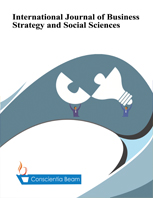A Qualitative Study on Barriers to E-Commerce Technologies Uptake by Informal Manufacturing Micro and Small Enterprises in Harare
DOI:
https://doi.org/10.18488/171.v5i1.2986Abstract
This study focused on finding out the major barriers inhibiting the uptake of e-commerce by manufacturing Micro and Small Enterprises (MSEs) in Harare, Zimbabwe. E-commerce is one of the major forces to business success, hence small businesses should implement e-commerce systems so as to compete with their bigger counterparts. It has the prospective to increase productivity and effectiveness in many facets of the business operations. Several developing countries across the globe have since started to put critical attention on e-commerce. However, the majority of MSEs in developing nations are still oblivious of the importance of e-commerce in enhancing their business processes, improving their customer base, retaining existing customers and ensuring better customer relationship management (CRM). The sample of the study consisted of 10 participants from metal fabricators and furniture manufacturers operating at Mbare-Magaba area and Glenview Area 8 Home Industry Complex. Data was collected using semi structured in-depth interview questions and data was analysed using content analysis. The findings show that informal MSEs face several barriers that include: high cost of Information Communication Technologies (ICTs) equipment and gadgets, incompatibility with business operations, lack of ICTs infrastructure support by the government, accessibility challenges, lack of education and awareness about e-commerce and cultural and trust issues.

